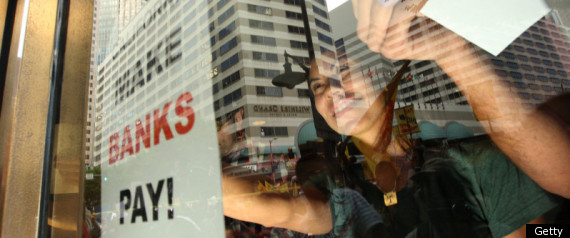 Though often blamed with making the calls that led the country to the brink of collapse, financial executives likely won't face criminal charges for their practices during the financial crisis, according to a former top U.S. investigator.
Though often blamed with making the calls that led the country to the brink of collapse, financial executives likely won't face criminal charges for their practices during the financial crisis, according to a former top U.S. investigator. The Justice Department has decided that prosecution of financial executives is "better left to regulators" to take civil-enforcement actions, David Cardona, who was a deputy assistant director at the Federal Bureau of Investigation until last month, told the Wall Street Journal.
"There's been a realization and a more deliberate targeting by the Department of Justice before we launch criminally on some of these cases," Cardona told the WSJ.
Cardona's comments come nearly eight months after Senator Carl Levin released a report on Goldman Sachs' role in the financial crisis, which found the investment bank profited off purposefully deceiving its own clients at the height of the financial crisis. Levin then said he would recommend some of the investment bank's executives for possible criminal prosecution.
Government officials haven't successfully prosecuted a single Wall Street executive or financial firm since the meltdown, despite many Americans and experts blaming them for the decisions that led to the housing crisis and subsequent financial panic, according to CBS News.
In fact, Wall Street executives have offered a litany of others to blame for the crisis: consumers who took out mortgages they couldn't afford, investors who demanded the opportunity to buy risky securities, policymakers who didn't anticipate the housing crash -- even regulators, according to The New York Times.
One of the ways Wall Street firms have escaped criminal punishment is through a Justice Department directive issued in the summer of 2008. The new process, known as deferred prosecution, allows for some leniency if firms investigate and admit their own wrongdoing, the NYT reports. But many have derided the guidelines, saying that they're allowing perpetrators to get off too easily.
One outspoken critic, Judge Jed Rakoff, made a decision last month that may force the SEC to step up its enforcement of financial crimes, but likely won't lead to more criminal prosecutions. Rakoff rejected a proposed settlement between the SEC and Citigroup, saying the settlement didn't go far enough to punish the bank because Citi didn't have to admit wrongdoing.
Though the most egregious examples of financial regulators' softness may be related to the financial crisis, the pattern has been apparent for years. Federal prosecution of financial fraud is on track to fall to a 20-year low, according a recent report from Syracuse University. The number of these types of prosecutions has gotten smaller and smaller since 1999, the report found.
Origin
Source: Huff
No comments:
Post a Comment